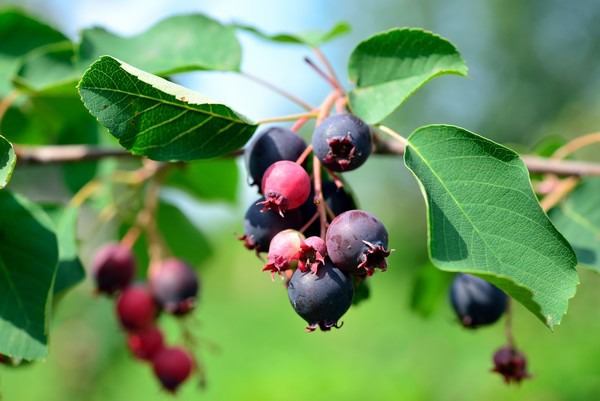Supermarkets are always looking for new products and innovations to attract new customers and stimulate purchases. Superfoods' are a popular category in a society that is increasingly focused on health.
The western juneberry, offered by S.Mile GmbH under its own brand Food United, is a novelty not only on the German but also on the European market, which could meet exactly this need for innovative, healthy products. "The juneberry is a delicacy, which has a unique and long-standing development process and offers enormous health benefits", says Christian Peucker, managing director of S.Mile.
The juneberry is not a new product at all. Like so many superfoods, it has a long history and can even be found in one or the other German garden - the fruit plant is already over 3000 years old and is a familiar face among the older generation and in naturopathy. "While other berries, such as the blueberry or raspberry, have suffered cross-breeding and genetic modification as a result of cultivation and the mass market, the juneberry has the advantage that it not only has an unadulterated record of experience with mankind, but also an unaltered genetic development," Peucker emphasizes.

Could the juneberry become the next superfood?
Considering its ingredients, the juneberry seems to be one of the few plants that could be considered a superfood. Superfood is a food product that is supposed to offer health benefits, partly based on scientifically proven relationships. "In a study, published in the Food Chemistry journal, researchers from the University Wrocław in Poland have examined the distribution of totally soluble solids, pectins, the sum of polyphenolic and terpenoid compounds, and the antioxidant effectiveness of fruits and their constituents, such as the peel, pulp and seeds of rock pear berry genotypes."
The approximately pea-sized, reddish-purple to blue-black coloured fruits taste mealy-sweet and offer a unique marzipan aroma. "They are not only suitable for raw consumption, but can also be used in mush, compote, juice, cakes, muesli, smoothies, fruit toppings for ice cream, quark and yoghurt. They are particularly good for cooking jams or jellies," Peucker continues. S.Mile LLC imports and sells the juneberry in a dried state, because the berry would only be available fresh for four weeks of a calendar year. When the juneberry gains a foothold in German trade, S.Mile would like to diversify in the direction of processing.
In Europe, the juneberry is not yet commercially cultivated or on the market. It has been cultivated and marketed in North America for some time - but so far only in small quantities and with a low yield per hectare. "With the development of Europe, however, this could soon change," says Peucker.
The next step is therefore to open up the market: "As a niche market, a place in the product range must always be fought for first. In view of the many health benefits of the juneberry and its well-known image, I am positive about this."
For more information:Christian Peucker
S.Mile GmbH
Ickerner Straße 3a, 45731 Waltrop
www.smile-gmbh.eu
peucker@smile-gmbh.eu
Tel: 02309 7853513
